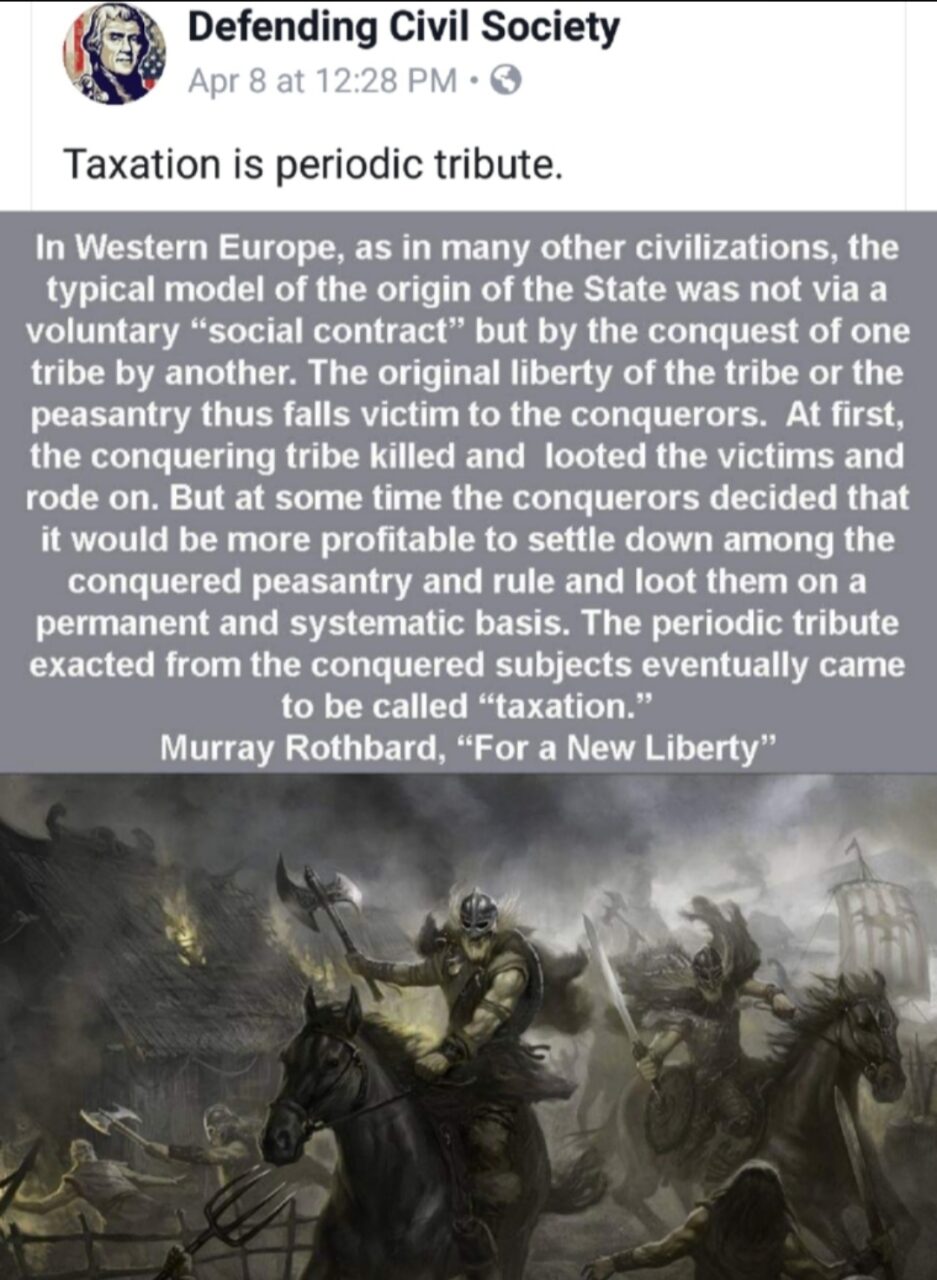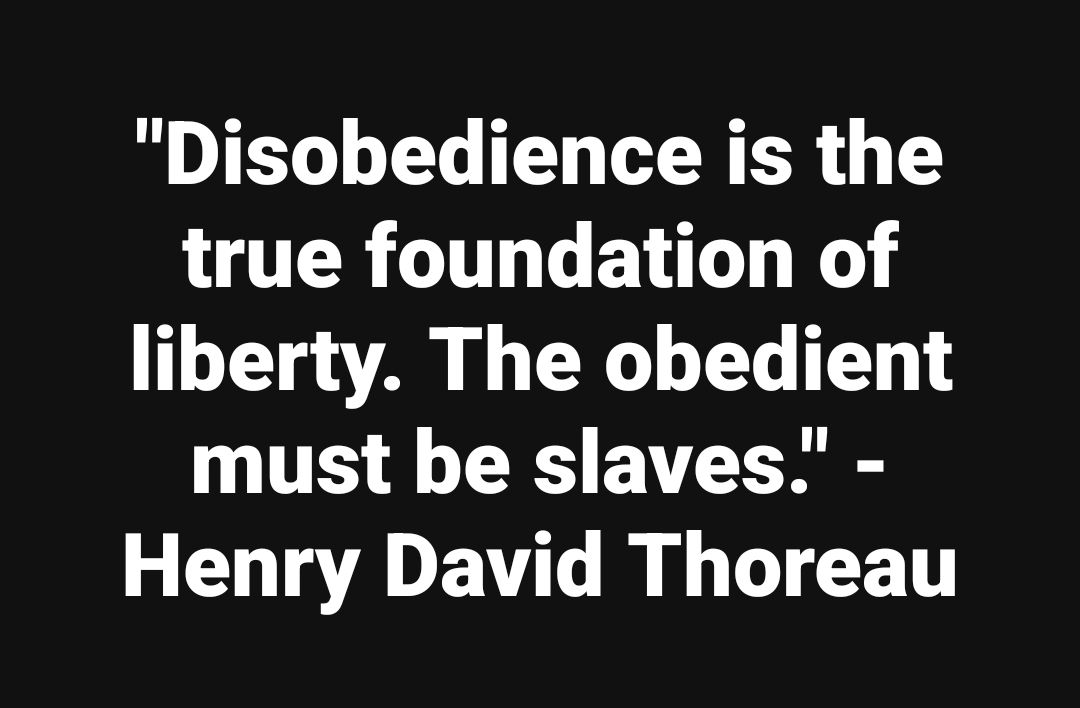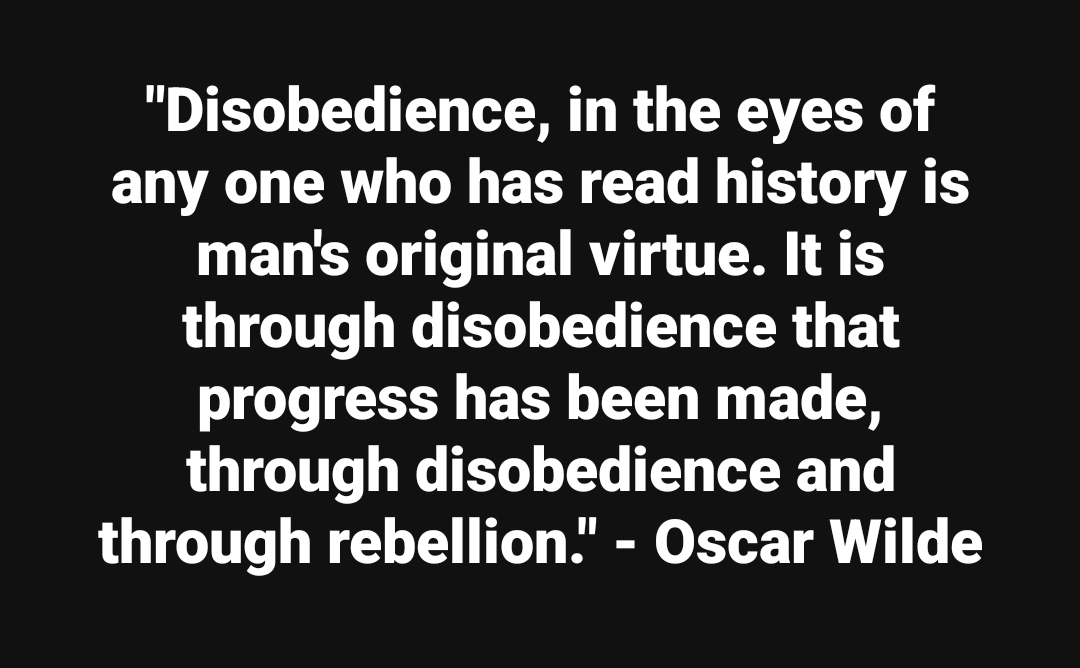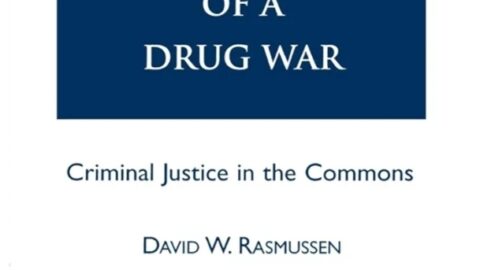There’s a perspective that aligns with a long-running critique of government, power, and economic exploitation—that the state has historically been an instrument of conquest, not a voluntary social contract. Thinkers like Frédéric Bastiat, Murray Rothbard, Lysander Spooner, and others have warned about how governments evolve into tools for legalized plunder, especially when controlled by banking and commercial elites.
Governments as Instruments of Conquest, Not Social Contracts
- The traditional social contract theory (Locke, Rousseau) argues that people voluntarily form governments to secure their rights.
- But in reality, many governments, especially in the West, were established through conquest—one group subjugating another and then codifying their dominance into law.
- The conquering elites then justify their rule by claiming it is for the “greater good” while systematically extracting wealth from the people.
How the State Became a System of Institutionalized Plunder
Rothbard’s description of the tribal conquest model is particularly revealing:
- Initial Conquest – One group subjugates another, taking wealth and resources by force.
- Transition to Rule – The conquerors realize it is more efficient to govern the conquered rather than just loot them and leave.
- Legitimization of Rule – The new ruling class establishes laws and institutions to justify their rule, portraying it as “for the people.”
- Systematic Taxation – What was once “tribute” paid to the conquerors becomes an official tax system that enslaves people under the illusion of legality.
This process continues today, but instead of kings and warlords, we have banking cartels, international corporations, and political elites controlling the modern state.

Taxation as Tribute to the Ruling Class
- Historically, rulers imposed tributes on the conquered to fund their own power.
- Today, taxation functions in the same way—a constant transfer of wealth from the working population to the ruling elite.
- Governments take wealth through taxes, redistribute it to their allies (corporations, banks, foreign powers), and enforce compliance through law and police.
Rothbard and other Austrian economists argue that taxation is theft—a non-consensual taking of property under the threat of force. This is the same process as ancient conquest, just dressed up in legal and bureaucratic language.
Frédéric Bastiat: When Plunder Becomes Law
“When plunder becomes a way of life for a group of men in society, over the course of time they create for themselves a legal system that authorizes it and a moral code that glorifies it.”
Bastiat describes how governments manipulate morality and legality to justify their rule:
- Law is not used to protect individual rights but to enforce elite interests.
- Morality is rewritten—citizens are taught that paying taxes and obeying unjust laws is virtuous.
- Opposition is criminalized—those who resist plunder are labeled criminals, extremists, or threats to society.
This process is self-sustaining—people grow up believing that government authority is always legitimate, without questioning who actually benefits from the system.
How the Banking and Corporate Elite Took Over
- Central Banking – The creation of institutions like the Federal Reserve allowed private bankers to control the money supply, indebting nations and citizens alike.
- Corporate Takeover of Government – Large corporations influence laws, regulations, and trade policies to benefit themselves at the expense of the people.
- Perpetual Wars – Wars are often engineered to serve banking and commercial interests, leading to massive public debt (which taxpayers must pay off).
- Debt Slavery – The modern economy is structured so that people must work their entire lives just to service debts, never truly owning anything.

Obedience to Law vs. True Liberty
“We believe in being subject to kings, presidents, rulers, and magistrates, in obeying, honoring, and sustaining the law.”
This idea—while noble in principle—becomes dangerous when rulers use laws to enslave rather than protect. Many people obey laws without questioning:
- Who wrote the laws?
- Who benefits from these laws?
- Do these laws protect liberty, or do they empower the ruling elite?
- Follow the money?

Obedience to an unjust system keeps people enslaved without them realizing it. This is why many revolutions and resistance movements start when people awaken to the nature of their servitude.
What Can Be Done?
- Educate Yourself & Others – The first step is recognizing how the system works and helping others understand it.
- Reduce Dependence on the System – Decentralized finance, cryptocurrency, barter economies, and self-sufficiency weaken the elites’ control.
- Resist Unjust Laws – Peaceful civil disobedience and legal resistance (challenging unconstitutional laws) can expose the system’s corruption.
- Demand Honest Money – The root of financial enslavement is fiat currency and central banking. Gold, silver, Bitcoin, and asset-backed economies provide alternatives.
- Support Decentralization – Large, centralized governments serve the elite. Local governance, community-based economies, and individual sovereignty are key to resisting tyranny.
Final Thought
Governments, banking elites, and corporate powers have perfected the art of legal plunder, keeping the masses obedient through propaganda, taxation, and fear. Breaking free requires knowledge, courage, and a willingness to reject the false morality of submission.
Would you rather be a citizen or a subject? The choice is yours.






